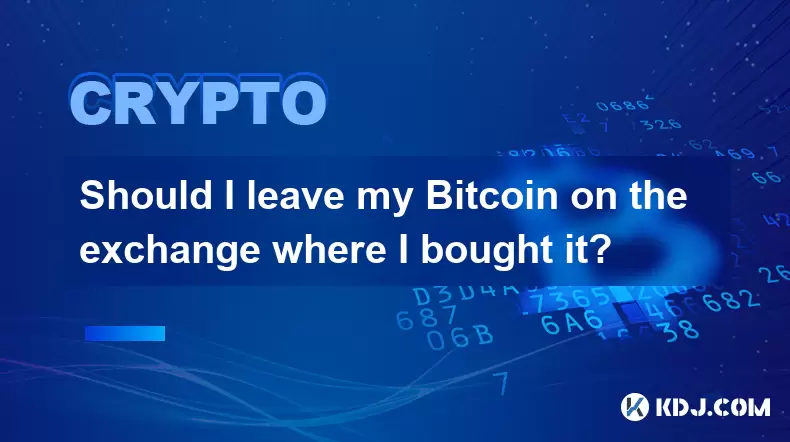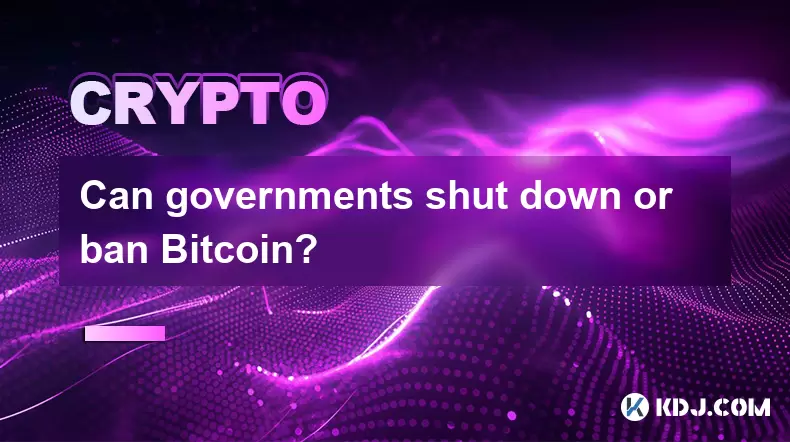-
 Bitcoin
Bitcoin $114400
0.68% -
 Ethereum
Ethereum $3550
2.48% -
 XRP
XRP $3.001
4.99% -
 Tether USDt
Tether USDt $0.9999
0.01% -
 BNB
BNB $757.6
1.46% -
 Solana
Solana $162.9
1.07% -
 USDC
USDC $0.9998
0.00% -
 TRON
TRON $0.3294
0.91% -
 Dogecoin
Dogecoin $0.2015
2.46% -
 Cardano
Cardano $0.7379
2.01% -
 Stellar
Stellar $0.4141
8.83% -
 Hyperliquid
Hyperliquid $37.83
-1.91% -
 Sui
Sui $3.454
0.76% -
 Chainlink
Chainlink $16.62
3.53% -
 Bitcoin Cash
Bitcoin Cash $554.6
2.84% -
 Hedera
Hedera $0.2486
3.91% -
 Ethena USDe
Ethena USDe $1.001
0.00% -
 Avalanche
Avalanche $21.95
3.34% -
 Toncoin
Toncoin $3.563
-2.85% -
 Litecoin
Litecoin $112.7
2.65% -
 UNUS SED LEO
UNUS SED LEO $8.977
0.13% -
 Shiba Inu
Shiba Inu $0.00001232
1.85% -
 Uniswap
Uniswap $9.319
2.93% -
 Polkadot
Polkadot $3.632
1.38% -
 Monero
Monero $307.2
2.36% -
 Dai
Dai $0.9997
-0.03% -
 Bitget Token
Bitget Token $4.340
0.91% -
 Pepe
Pepe $0.00001048
1.07% -
 Cronos
Cronos $0.1348
3.26% -
 Aave
Aave $261.5
1.93%
How to ensure Bitcoin anonymity? Bitcoin privacy protection mechanism
Bitcoin offers pseudonymity, not true anonymity, as transactions on its transparent blockchain can be traced unless users employ privacy tools like mixing services, CoinJoin, and Tor.
Jun 15, 2025 at 03:29 am

Understanding Bitcoin Anonymity
Bitcoin is often perceived as an anonymous currency, but in reality, it operates on a transparent blockchain, where every transaction is publicly recorded. This means that while users are not required to disclose their identities, transactions can be traced back to specific addresses. To ensure anonymity, users must take additional steps beyond the standard use of Bitcoin wallets.
One key aspect of Bitcoin's design is its pseudonymous nature. Each user interacts with the network through wallet addresses, which do not inherently contain personal information. However, if an address is ever linked to an identity—through KYC procedures at exchanges or public transactions—then the entire history associated with that address becomes traceable.
Using Privacy-Focused Wallets
To enhance privacy, selecting the right wallet is crucial. Not all wallets offer the same level of anonymity. Privacy-focused wallets such as Wasabi Wallet and Samourai Wallet incorporate advanced features like CoinJoin and PayNyms to obscure transaction trails.
CoinJoin works by combining multiple transactions into one, making it difficult to determine which input corresponds to which output. Wasabi Wallet implements this technique effectively, allowing users to mix coins without revealing their transaction patterns. Similarly, Samourai Wallet introduces features like Ricochet, which adds extra hops to a transaction, further complicating tracking efforts.
It is important for users to avoid reusing addresses. Every time a new transaction is made, a new receiving address should be generated. Reusing addresses increases the risk of linking multiple transactions together, thereby reducing anonymity.
Leveraging Mixing Services
Bitcoin mixing services, also known as tumblers, play a significant role in enhancing privacy. These services take a user’s coins, mix them with others, and return different coins of equal value. This process breaks the direct link between sender and receiver.
There are both centralized and decentralized mixing options available. Centralized mixers like ChipMixer allow users to deposit funds into pools and withdraw from different ones, ensuring that no direct trail leads back to the original source. Decentralized solutions like JoinMarket enable peer-to-peer coin mixing without relying on a central authority.
When using mixing services, users must exercise caution. It is essential to choose reputable platforms and avoid sharing metadata or personal information during the process. Additionally, mixing should occur before any transaction that could potentially expose identity.
Utilizing Multiple Wallets Strategically
Maintaining separate wallets for different purposes enhances privacy significantly. Users can have distinct wallets for everyday spending, savings, and high-risk activities such as gambling or dark web purchases.
By compartmentalizing funds across multiple wallets, users reduce the chances of exposing their full balance or transaction history. For instance, a hot wallet used for daily transactions should never interact directly with a cold storage wallet holding larger amounts.
Transferring funds between these wallets should also be done carefully. Ideally, transfers should be conducted through mixing services or via intermediate wallets to prevent linkage. Avoiding direct movement from a high-value wallet to a frequently used one helps maintain separation and anonymity.
Employing Tor and Other Network Protection Tools
Network-level anonymity is just as important as transaction-level privacy. Bitcoin nodes communicate over the internet, and IP addresses can potentially be linked to transactions. Using tools like Tor (The Onion Router) helps mask a user’s IP address, making it more challenging to associate transactions with real-world identities.
Connecting to Bitcoin nodes via Tor ensures that outbound connections are routed through multiple relays, obscuring the origin. Some wallets, like Wasabi Wallet, integrate Tor natively, eliminating the need for external configuration.
In addition to Tor, users may consider employing Virtual Private Networks (VPNs) or other anonymizing networks when interacting with the Bitcoin blockchain. Combining Tor with a trusted VPN provides an extra layer of protection, especially when accessing online services related to Bitcoin.
Frequently Asked Questions
Q: Can I achieve complete anonymity with Bitcoin?
While Bitcoin offers pseudonymity, achieving complete anonymity requires additional measures such as using privacy wallets, mixing services, and network protection tools. Even with these precautions, absolute anonymity cannot be guaranteed due to potential metadata leaks or chain analysis techniques.
Q: Is it illegal to use Bitcoin mixing services?
Mixing services themselves are not inherently illegal, but their usage may raise red flags with regulatory authorities depending on jurisdiction. Users should understand local laws and ensure compliance when utilizing such tools.
Q: How does CoinJoin protect my privacy?
CoinJoin aggregates multiple transactions into a single one, making it difficult to trace individual inputs to outputs. This obfuscates transaction paths and prevents easy identification of sender-receiver relationships.
Q: Should I avoid using popular Bitcoin exchanges for privacy reasons?
Exchanges typically require Know Your Customer (KYC) procedures, which link identities to Bitcoin addresses. If privacy is a priority, users should minimize interactions with KYC-compliant exchanges and opt for peer-to-peer trading platforms instead.
Disclaimer:info@kdj.com
The information provided is not trading advice. kdj.com does not assume any responsibility for any investments made based on the information provided in this article. Cryptocurrencies are highly volatile and it is highly recommended that you invest with caution after thorough research!
If you believe that the content used on this website infringes your copyright, please contact us immediately (info@kdj.com) and we will delete it promptly.
- Cryptocurrency, Altcoins, and Profit Potential: Navigating the Wild West
- 2025-08-04 14:50:11
- Blue Gold & Crypto: Investing Disruption in Precious Metals
- 2025-08-04 14:30:11
- Japan, Metaplanet, and Bitcoin Acquisition: A New Era of Corporate Treasury?
- 2025-08-04 14:30:11
- Coinbase's Buy Rating & Bitcoin's Bold Future: A Canaccord Genuity Perspective
- 2025-08-04 14:50:11
- Coinbase's Buy Rating Maintained by Rosenblatt Securities: A Deep Dive
- 2025-08-04 14:55:11
- Cryptos, Strategic Choices, High Returns: Navigating the Meme Coin Mania
- 2025-08-04 14:55:11
Related knowledge

Should I leave my Bitcoin on the exchange where I bought it?
Aug 04,2025 at 06:35am
Understanding the Role of Smart Contracts in Decentralized Finance (DeFi)Smart contracts are self-executing agreements with the terms directly written...

What is the difference between holding Bitcoin on an exchange versus in a personal wallet?
Aug 02,2025 at 03:15pm
Understanding Custodial vs Non-Custodial ControlWhen holding Bitcoin on an exchange, users are essentially entrusting their assets to a third party. E...

What is the environmental impact of Bitcoin mining, and is it a serious concern?
Aug 04,2025 at 02:14am
Understanding the Energy Consumption of Bitcoin MiningBitcoin mining relies on a proof-of-work (PoW) consensus mechanism, which requires miners to sol...

What is a 51% attack, and could it destroy Bitcoin?
Aug 03,2025 at 05:08pm
Understanding the Concept of a 51% AttackA 51% attack refers to a scenario in which a single entity or group gains control of more than half of a bloc...

What are the biggest security risks associated with holding Bitcoin?
Aug 03,2025 at 03:16pm
Exposure to Private Key CompromiseOne of the most critical security risks when holding Bitcoin is the compromise of private keys. These cryptographic ...

Can governments shut down or ban Bitcoin?
Aug 02,2025 at 09:44am
Understanding Bitcoin’s Decentralized StructureBitcoin operates on a decentralized peer-to-peer network, meaning it is not controlled by any single en...

Should I leave my Bitcoin on the exchange where I bought it?
Aug 04,2025 at 06:35am
Understanding the Role of Smart Contracts in Decentralized Finance (DeFi)Smart contracts are self-executing agreements with the terms directly written...

What is the difference between holding Bitcoin on an exchange versus in a personal wallet?
Aug 02,2025 at 03:15pm
Understanding Custodial vs Non-Custodial ControlWhen holding Bitcoin on an exchange, users are essentially entrusting their assets to a third party. E...

What is the environmental impact of Bitcoin mining, and is it a serious concern?
Aug 04,2025 at 02:14am
Understanding the Energy Consumption of Bitcoin MiningBitcoin mining relies on a proof-of-work (PoW) consensus mechanism, which requires miners to sol...

What is a 51% attack, and could it destroy Bitcoin?
Aug 03,2025 at 05:08pm
Understanding the Concept of a 51% AttackA 51% attack refers to a scenario in which a single entity or group gains control of more than half of a bloc...

What are the biggest security risks associated with holding Bitcoin?
Aug 03,2025 at 03:16pm
Exposure to Private Key CompromiseOne of the most critical security risks when holding Bitcoin is the compromise of private keys. These cryptographic ...

Can governments shut down or ban Bitcoin?
Aug 02,2025 at 09:44am
Understanding Bitcoin’s Decentralized StructureBitcoin operates on a decentralized peer-to-peer network, meaning it is not controlled by any single en...
See all articles

























































































